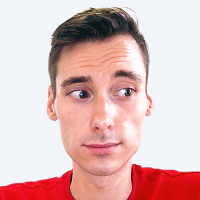This community is in archive. Visit community.xprize.org for the current XPRIZE Community.
What does the world need to know about longevity?
 NickOttens
Posts: 899 admin
NickOttens
Posts: 899 admin
If you had to describe in a single sentence what the world needs to know about longevity, what would it be?
1

Comments
Just one of many examples is that age is the single greatest risk factor for developing cancer. In fact, 60% of people who have cancer are 65 or older. At age 30, we have a one in a thousand chance of getting cancer in the next year, but by the age of 80, our chance of getting cancer in the next year is one in ten. A hundred times higher.
You've probably heard people say 'he/she died of old age'. What does this really mean? Generally we have not thought much about this definition, but in reality every person who died of "old age" died of a medical condition. Every "old age" death has a clinical explanation.
For as long as humans have struggled to understand the nature of our existence, we have not asked many questions about aging. We have pretty much accepted it as the natural path we must all endure.
At the same time, we've been fighting disease for thousands of years, and even though disease is also completely natural, we don't just surrender to it. We intervene; we modify whatever is necessary to get rid of it, and this makes sense to most of us. It is not controversial. But when it comes to aging, for some reason it is!
Gerontology and Geriatrics are the medical fields concerned with ill health in the aged, but so far, they have failed to cure any of these diseases; only ameliorating the symptoms, and sometimes only slowing down the otherwise inevitable progress of ailments.
Even though it is completely obvious that as we age we lose our health, in all the years of diligently struggling to advance research and cures, science has not focused on it in the right way. As much as we fight to find cures for disease in general, when they are associated with aging, we see them differently. We have cured and even eradicated many infectious diseases, but not one single age-related disease. It is definitely time for a paradigm shift.
On top of the indescribable suffering that aging brings, the increasing burden of disease that results from aging is becoming unsustainable to our healthcare system. The disability of millions of people who live longer but in very bad health, represent a major global challenge. Those who are not healthy can't contribute to the economy of the world and become an escalating heavy load to the system.
I've been working on this mission for over 15 years now and really hope that one day we can stop the greatest torture and destruction of our species -- allowing humans to be born with the gift of lives as long, healthy, and fulfilling as we choose to make them.
An important consideration along the way is who owns the forthcoming vital technology, and who will have reasonable access to it. With that in mind, it is clear that a publicly-sponsored "Apollo Project" against AAMM is appropriate and essential. This has been expressed by the California Healthy Aging Initiative (CHAI) created by a group of us, but has not yet been adequately funded to reach the ballot box and be accepted by the California voters.
This a great point. One of the discussions we've had has been around classifying aging as a disease and the funding this could unlock to extend the human lifespan.